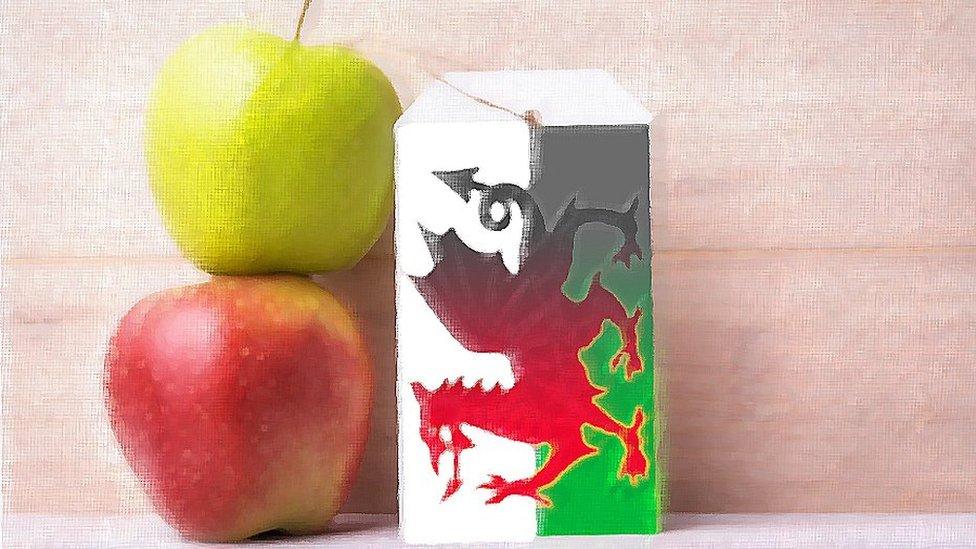Apple and pear varieties saved by Aberystwyth scientists
- Published
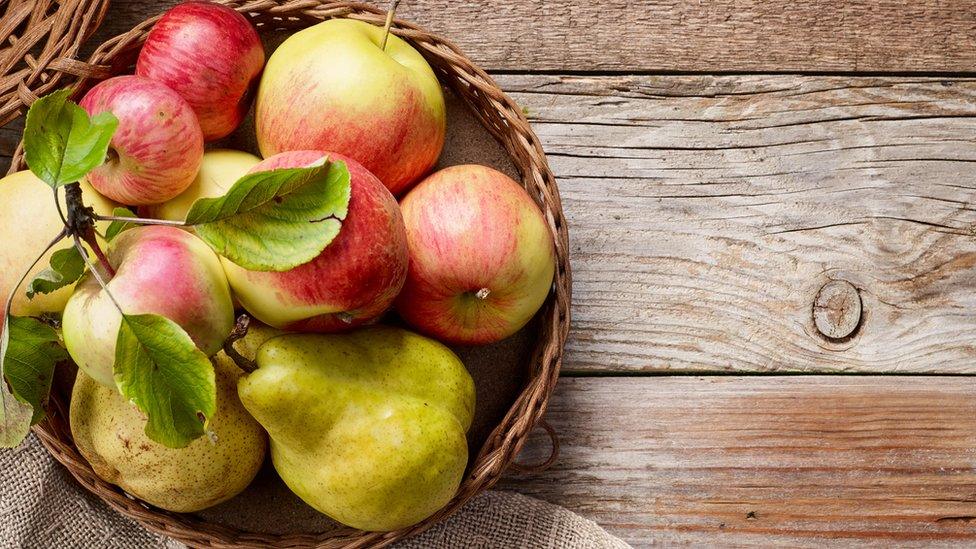
There are thought to be 7,500 eating apple varieties in the world, with 3,600 in the UK
Endangered apples and pears have been saved by a "living museum" created in an orchard by scientists.
More than 60 Welsh varieties have been "protected from extinction" by plant researchers at Aberystwyth University using a DNA fingerprinting technique.
The Jane and Cadwallader apples are among those saved by breeding experts.
Now scientists are offering experienced gardeners the chance to grow their own varieties using cuttings from apples and pears in the university's orchard.
"We hope this will help put them back on the map, making them viable commercial alternatives for producers and manufacturers to use in mainstream products," said geneticist Dr Danny Thorogood, of Aberystwyth University.
Dr Thorogood said he thought there were 7,500 eating apple varieties in the world, with 3,600 in the UK and 100 in Wales.
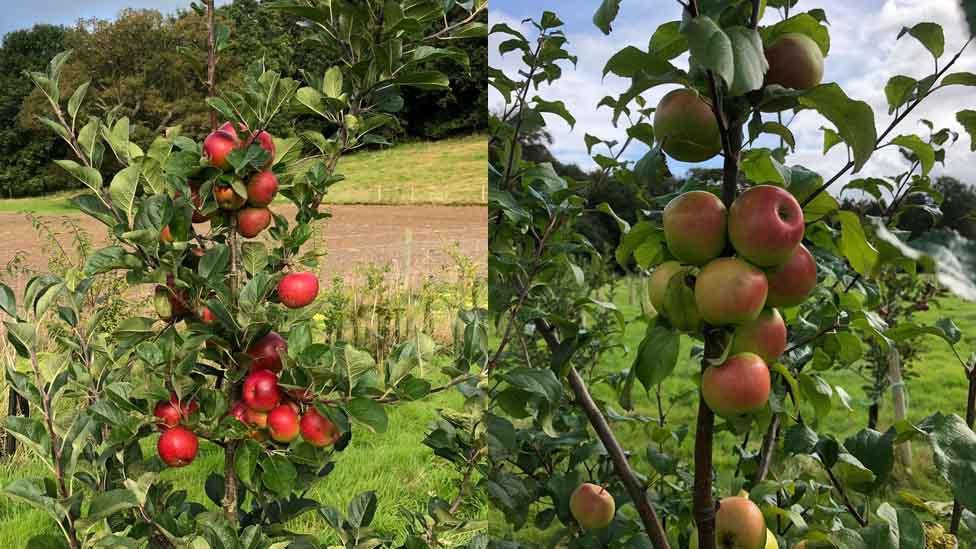
The Jane is a bitter-sweet cider apple and Kennedy’s Late is a sharp cider apple
"The project identified trees from all over Wales that were found to be unique, using a DNA fingerprinting technique," he added.
"These trees were then propagated and planted in the heritage orchard and replica orchards at other sites in Wales."
People wanting to grow their own apples and pears can undertake a course at the university's heritage orchard on Wednesday.
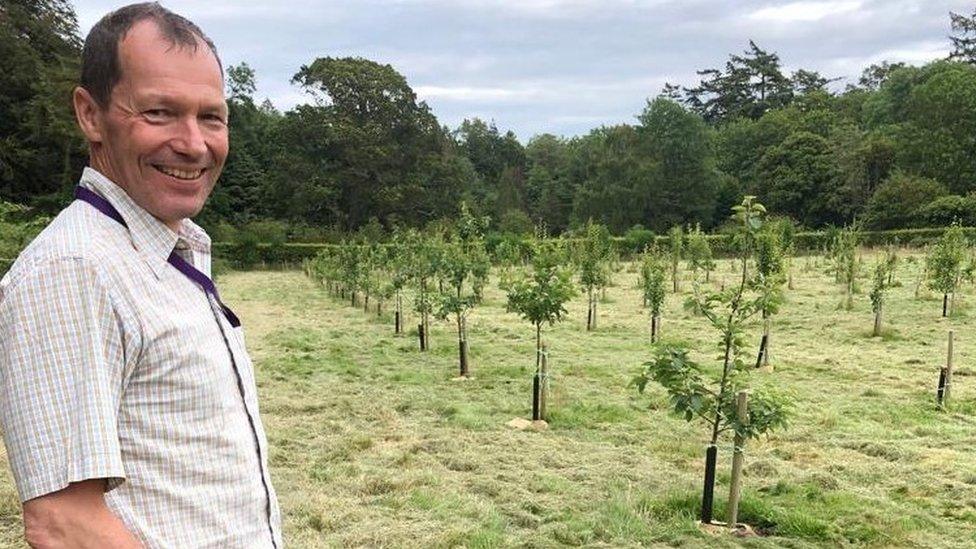
Dr Danny Thorogood wants to help bring rare varieties of apples and pears into the mainstream
"Our aim is to conduct further scientific research around the ideal uses of each of our heritage varieties, such as eating, cider making or cooking - based on their flavour profiles, texture and longevity, amongst other factors," added Dr Thorogood.
The university's orchard was created as part of a National Lottery fund project managed by the Welsh Perry and Cider Society.
- Published17 October 2019
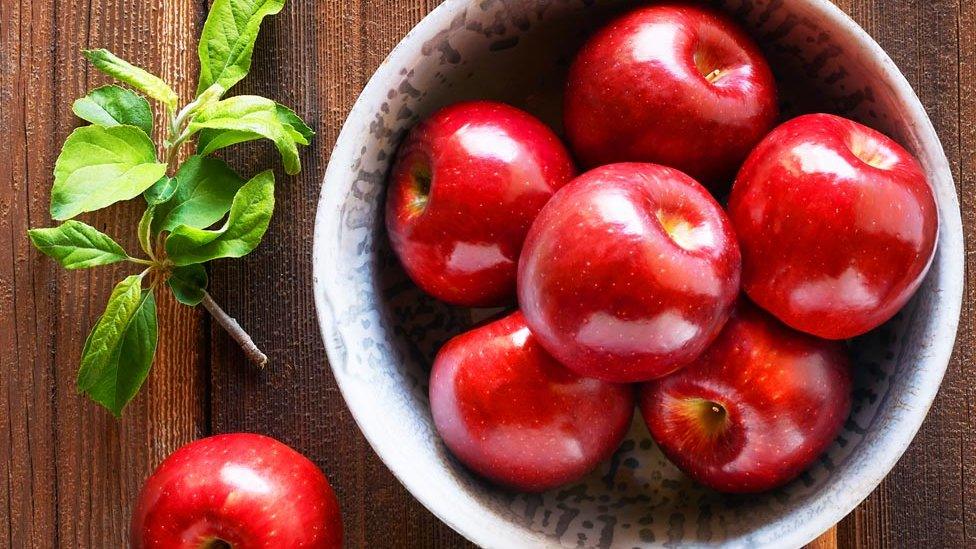
- Published9 January 2019
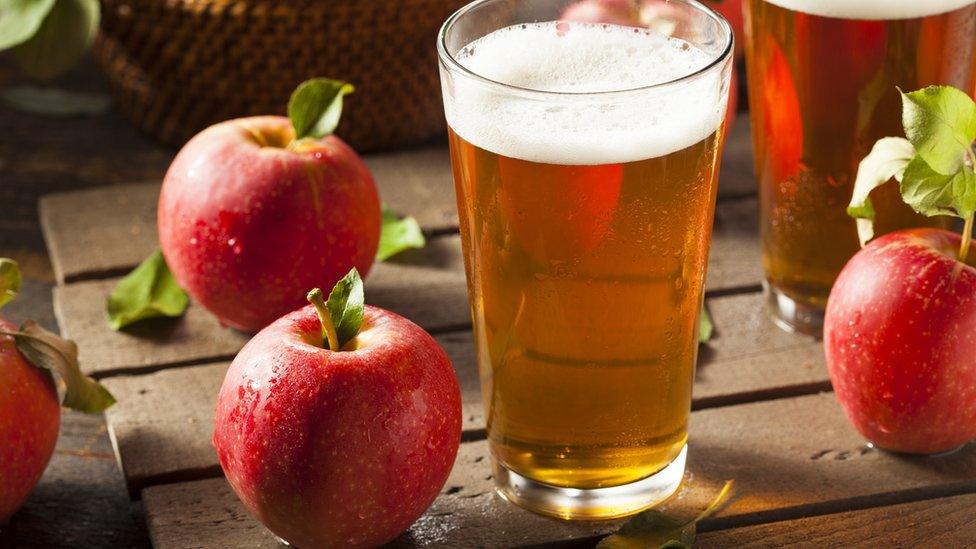
- Published22 July 2017
